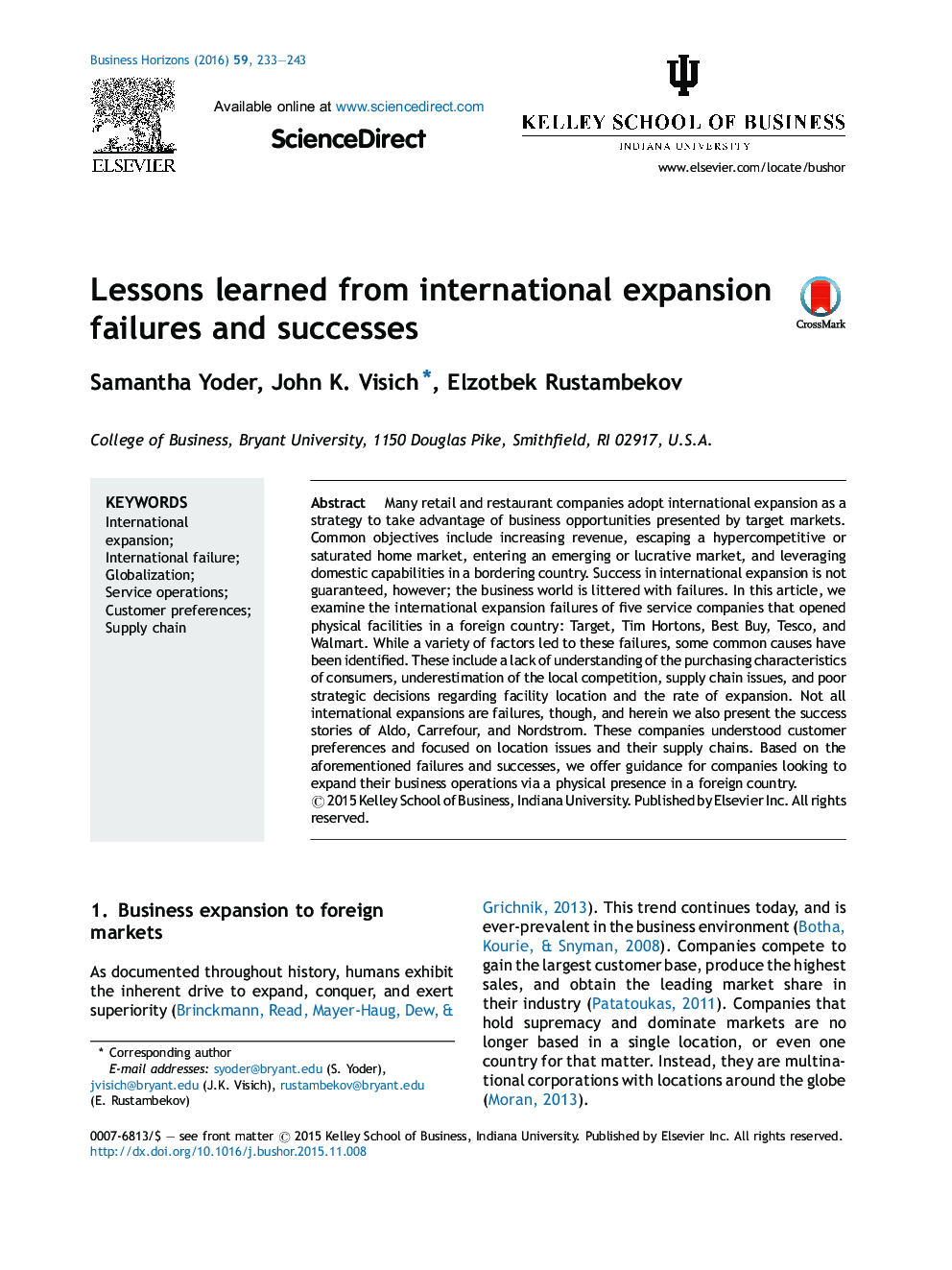| Article ID | Journal | Published Year | Pages | File Type |
|---|---|---|---|---|
| 1013926 | Business Horizons | 2016 | 11 Pages |
Many retail and restaurant companies adopt international expansion as a strategy to take advantage of business opportunities presented by target markets. Common objectives include increasing revenue, escaping a hypercompetitive or saturated home market, entering an emerging or lucrative market, and leveraging domestic capabilities in a bordering country. Success in international expansion is not guaranteed, however; the business world is littered with failures. In this article, we examine the international expansion failures of five service companies that opened physical facilities in a foreign country: Target, Tim Hortons, Best Buy, Tesco, and Walmart. While a variety of factors led to these failures, some common causes have been identified. These include a lack of understanding of the purchasing characteristics of consumers, underestimation of the local competition, supply chain issues, and poor strategic decisions regarding facility location and the rate of expansion. Not all international expansions are failures, though, and herein we also present the success stories of Aldo, Carrefour, and Nordstrom. These companies understood customer preferences and focused on location issues and their supply chains. Based on the aforementioned failures and successes, we offer guidance for companies looking to expand their business operations via a physical presence in a foreign country.
